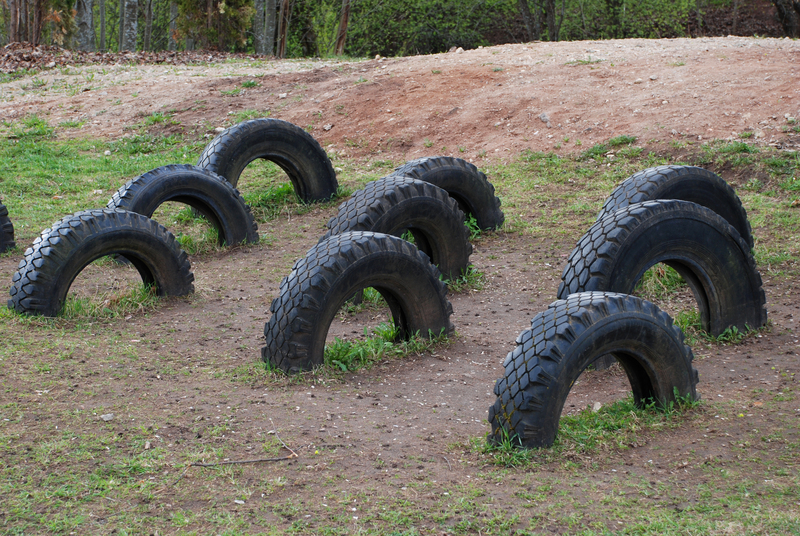How to Stop PPE Waste from Polluting Your Community
The COVID-19 pandemic has led to a global surge in the use of personal protective equipment (PPE) such as masks, gloves, face shields, and gowns. While PPE plays a crucial role in safeguarding public health, it has also given rise to a pervasive environmental issue: PPE waste pollution. Discarded PPE items are accumulating on streets, parks, waterways, and beaches, endangering wildlife, polluting ecosystems, and impacting human communities. If you're concerned about environmental sustainability and the health of your neighborhood, understanding how to stop PPE waste from polluting your community is essential. This comprehensive guide explores actionable strategies for reducing PPE waste, community involvement, recycling innovations, and policy advocacy.

Understanding the Impact of PPE Waste on Your Community
*PPE pollution* is more than just litter; it's a significant environmental hazard. Most disposable PPE, such as masks and gloves, are made from non-biodegradable plastics like polypropylene. These materials can linger in landfills or the natural environment for decades--sometimes even centuries--breaking down into harmful microplastics. The aftermath of improper PPE disposal includes:
- Threats to Wildlife: Animals can ingest or become entangled in discarded PPE, leading to injury or death.
- Waterway Contamination: PPE washed into rivers, lakes, and oceans can degrade water quality and harm aquatic ecosystems.
- Community Health Risks: Littered PPE can harbor pathogens, contributing to disease spread.
- Visual Pollution: Accumulation of used masks and gloves diminishes the aesthetic and recreational value of public spaces.
Tackling these challenges demands both *individual accountability* and *community-wide action*.
Why Is PPE Waste a Growing Environmental Concern?
The convenience and necessity of single-use PPE have led to an exponential increase in consumption. According to the World Health Organization, an estimated 129 billion face masks and 65 billion gloves were used globally each month at the height of the pandemic. Unfortunately, most of these end up in the trash, with a significant fraction escaping into the natural environment.
This waste contributes to:
- Marine Plastic Debris
- Soil and Water Contamination
- Harmful Microplastic Accumulation
Understanding the scale of the problem is the first step towards discovering effective solutions to PPE waste pollution.
Individual Actions: How Can You Reduce PPE Pollution?
Adopt Reusable PPE Alternatives
One of the simplest ways to cut down on PPE waste is to choose reusable face masks made of cotton or other washable materials. These masks offer good protection for the public and significantly reduce reliance on single-use plastics. Some additional tips include:
- Consider using reusable gloves made from silicone or latex when appropriate.
- Sanitize and wash your PPE items regularly to maintain safety and hygiene.
- Carry an extra mask in a clean pouch to avoid needing to replace single-use masks while out and about.
Proper Disposal of Single-Use PPE
When reusable PPE is not feasible, proper disposal of single-use PPE becomes vital. To stop PPE waste pollution in your community, always:
- Place used masks and gloves in designated trash bins--never discard them on the streets, in parks, or in waterways.
- Seal used PPE in a plastic bag (if possible) before throwing it in the trash to minimize exposure to sanitation workers.
- Never flush masks or gloves down toilets or drains, as they can cause blockages and environmental contamination.
Do Not Recycle Used PPE with Regular Household Recyclables
*Face masks, gloves, and other PPE should NOT go into your household recycling bin.* They can tangle machinery at recycling facilities, threaten workers' safety, and contaminate recycled materials. Follow local advice on special collection points or disposal options for used PPE.
Community Efforts: Collaborative Ways to Keep PPE Waste Out of Our Environment
Set Up PPE Collection Points
Many municipalities and community groups are establishing specific bins for the collection of used PPE. These bins are designed to safely contain and manage PPE waste before it's incinerated or otherwise treated.
- Lobby your local council or school to install PPE waste bins in public spaces.
- Ensure bins are labeled prominently and emptied regularly.
Organize or Join Community Clean-Ups
A hands-on approach to tackling PPE waste is to organize or participate in local clean-up events. These activities gather volunteers to remove PPE and other litter from roadsides, parks, beaches, and waterways.
- Provide volunteers with gloves, grabbers, and puncture-proof bags.
- Work with local authorities for safe disposal of collected PPE.
Educate and Raise Awareness
Public education is crucial in the fight against PPE pollution. Community leaders, teachers, and activists can:
- Run social media campaigns to highlight the dangers of improper PPE disposal.
- Develop school programs emphasizing environmental protection.
- Design informative posters to be placed near trash bins in public areas.
By spreading the word, you encourage others to stop PPE waste from polluting your community.
Innovation and Recycling: The Future of Sustainable PPE Management
Emerging Recycling Technologies for PPE
While traditional recycling can't handle contaminated PPE, new approaches are being developed. Some of the most promising include:
- Chemical Recycling: Advanced processes can break down the plastics in masks and gloves for reuse in new materials.
- Energy Recovery: Certain facilities can incinerate PPE waste at high temperatures to generate electricity, reducing waste volume.
- Thermochemical Conversion: New plants are experimenting with converting PPE waste into fuels or raw materials for manufacturing.
Sustainable PPE Design
Companies and researchers are engineering *biodegradable* and *compostable* PPE alternatives using plant-based materials. Investing in and supporting these innovations can dramatically lower plastic waste from PPE in the future.
Policy and Advocacy: Pushing for Systemic Changes
Governments and institutions play a decisive role in curbing PPE waste pollution. Community members and organizations can:
- Advocate for producer responsibility schemes that require companies to manage the end-of-life of their PPE products.
- Support local bans or surcharges on disposable plastic PPE when safe alternatives exist.
- Encourage government incentives for businesses developing reusable or recyclable PPE solutions.
Policy changes can create a systemic shift towards sustainable PPE use and disposal, ensuring a lasting reduction in environmental harm.
How Schools and Workplaces Can Stop PPE Waste Pollution
With many schools and offices now implementing PPE requirements, large volumes of waste can accumulate quickly. Institutions can advance sustainability by:
- Providing clear instructions and dedicated bins for PPE disposal.
- Stocking reusable masks and shields for students and employees.
- Integrating PPE waste awareness into environmental or health and safety training.
- Partnering with local recyclers or specialized waste handlers.
Setting the standard for PPE waste management in these settings can inspire broader community action.
Kids and Families: Start at Home to Prevent PPE Waste
Protecting your community from PPE pollution begins at home. Families and kids can play a significant role by:
- Choosing fun, stylish, washable masks for everyday use.
- Decorating reusable mask pouches or storage boxes for children.
- Including PPE waste prevention tips in family discussions about environmental responsibility.
- Leading by example--properly disposing of any single-use PPE after use.
Success Stories: Communities Tackling PPE Waste Pollution
Around the world, cities and organizations have launched inspiring initiatives to keep PPE waste from damaging local environments:
- Vancouver, Canada: Launched a PPE recycling trial that collects masks and gloves from transit stations for safe processing.
- London, UK: The local council introduced dozens of PPE-specific bins, collecting thousands of items that would otherwise become litter.
- Asia: Nonprofits are running educational campaigns and beach clean-ups to prevent PPE from washing into the ocean.
These efforts show that, with concerted action, it's possible to make a real dent in the PPE waste problem.

Frequently Asked Questions about PPE Waste Pollution
Is it safe to recycle PPE?
Currently, most household recycling programs do not accept PPE due to potential contamination. However, some specialized companies and pilot programs have begun collecting and processing PPE waste. Always check with your local recycling authority.
What do I do with used masks and gloves?
Place used PPE in a secure trash bag and dispose of it with household waste. Never litter or flush PPE down the toilet.
Are there alternatives to single-use PPE?
Yes! Reusable cloth masks and, in some cases, washable gloves are effective for the general public. Health professionals must sometimes use certified single-use PPE for protection.
How can I encourage others to stop PPE waste pollution?
Start conversations, share information on social media, join community clean-ups, or advocate for policy changes in your area.
Conclusion: Making a Difference Starts with You
PPE pollution is a modern challenge demanding our urgent attention. By making simple changes to your own habits, engaging your community, supporting innovative recycling methods, and advocating for policy reform, you can play a critical role in stopping PPE waste from polluting your community.
Remember: Every mask, glove, or PPE item you dispose of responsibly is one less piece of waste threatening our natural world. Join the movement today--together, we can keep our communities safe and clean for future generations.
